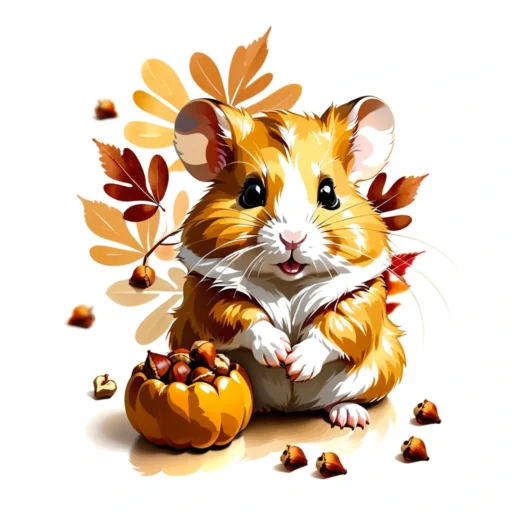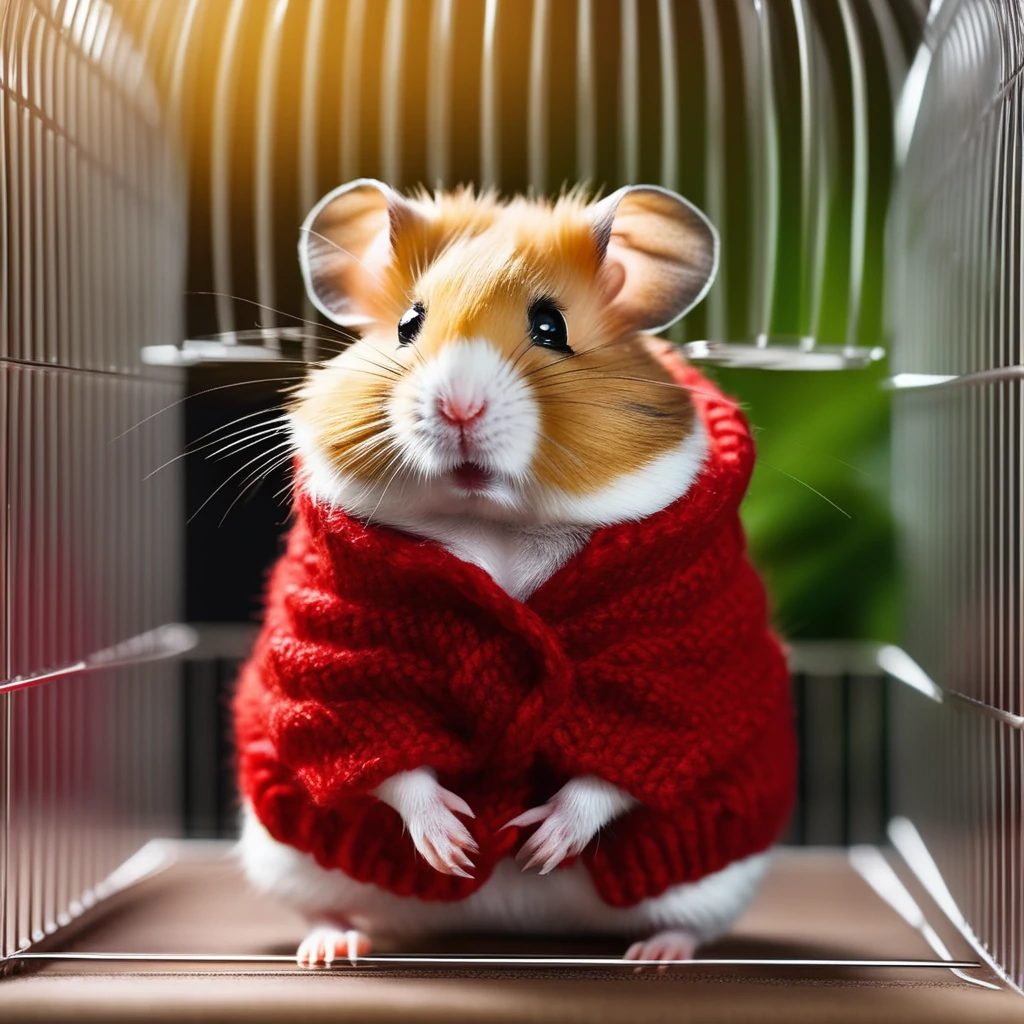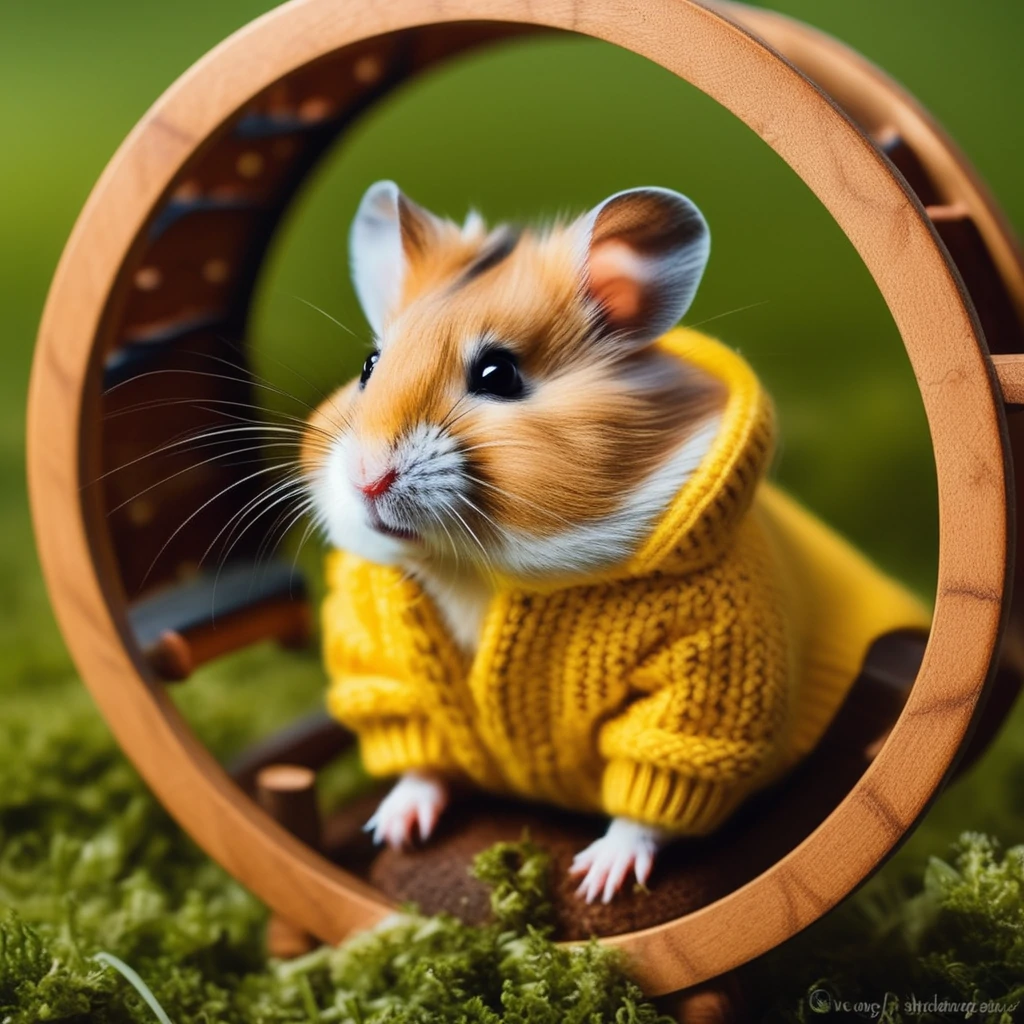Raisins are a popular snack for humans, but can our small furry friends enjoy them as well? Specifically, can hamsters eat raisins? In this article, we’ll explore the truths and myths around feeding raisins to hamsters.
Can Hamsters Eat Raisins?
When it comes to hamsters and raisins, the short answer is yes, hamsters can eat raisins but only in strict moderation. Raisins are high in natural sugar and acidic content which can cause problems if hamsters eat too many.
However, when fed occasionally and in small quantities, raisins can make for a nice treat.
Are Raisins Safe for Hamsters?
Raisins themselves are not inherently unsafe for hamsters. The concerns around raisins have more to do with the quantities eaten.
Raisins are high in sucrose and citric acid. Too much sugar and acidity can cause digestive issues in hamsters’ sensitive stomachs. However, when fed sparingly, most hamsters tolerate raisins well.
Nutritional Value of Raisins for hamsters:
| Raisins | Calories gm | Carbohydrates gm | Fiber Gm | Protein Gm | Fat Gm | Mineral and vitamins |
| Black Raisins | 290 | 80 | ,3.6 | 3.2 | 0.4 | Vitamins C& calcium 45mg |
| Golden | 288 | 79 | 3.5 | 3.2 | 0 .5 | Vitamins D&irom 1.9 mg |
| Flame Raisins | 298 | 75 | 3.7 | 3.5 | 0.4 | Vitamins C& potassium 825mg |
| Sultana Raisins | 299 | 80 | 3.6 | 3.1 | 0.7 | Vitamins k & iron 1.9 |
Types of Hamsters That Can Eat Raisins:
All types of domestic hamsters kept as pets can eat some raisins safely. This includes:
- Syrian hamsters
- Dwarf campbell hamsters
- Dwarf winter white Russian hamsters
- Dwarf Roborovski hamsters
- Chinese hamsters
The most popular pet hamster breeds like Syrian hamsters and Dwarf hamsters tolerate raisins well as occasional treats.
However, any hamster eating significant quantities of raisins risks health issues. Moderation is key no matter the specific hamster variety.
Raisins vs. Other Fruits for Hamsters:
While raisins themselves may be suitable for hamsters in moderation, how do they compare to other fruits hamsters can eat?
Here, we’ll analyze raisins side by side with other popular fruits to highlight key differences.
Raisins vs. Blueberries:
Both raisins and blueberries contain ample sugar which limits their suitability for frequent feeding. However, blueberries provide more health benefits thanks to substantial fiber and antioxidant content.
Since blueberries offer more complete nutrition compared to raisins, they make a better choice for hamsters overall.
Raisins vs. Bananas:
Bananas contain much less sugar compared to raisins, making them safer for regular feeding. Banana slices or small pieces make excellent daily fruit treats.
Bananas also provide potassium, magnesium, and vitamin C. The high fiber in bananas compared to raisins gives bananas another advantage for hamsters.
Raisins vs. Apples:
Apples offer a nice sweetness for hamsters but with much less sugar concentration versus raisins. Apples also contain antioxidants, fiber, and vitamin C beneficial for hamsters’ health and immune function.
For these reasons, chopped apples make much healthier daily fruit treats than raisins for hamsters.
Raisins vs. Carrots:
Fresh vegetables like carrots balance raisins’ high sugar content with nutrients hamsters need most like vitamin A, calcium, and antioxidants. Carrots also help wear down hamsters’ continuously growing teeth.
As daily vegetable supplements, carrots provide much steadier nutritional value than the concentrated sugar rush of raisins.
Potential Risks of Giving Raisins to Hamsters::
While raisins carry risks for hamsters even in moderation, what exactly makes them potentially problematic?
Here are some of the top risks and concerns around feeding raisins to hamsters:
Diabetes Risk:
The high sugar content of raisins poses the most significant risk – diabetes or diabetes-like symptoms. Hamsters cannot metabolize sugar as efficiently as humans.
Consuming too many high-sugar foods like raisins can cause blood sugar levels to spike then subsequently crash in hamsters.
Over time, this leads to chronic high blood sugar indicative of diabetes. Diabetic hamsters display symptoms like lethargy, increased thirst, weight loss, and poor coat quality. Avoiding high-sugar foods as much as possible helps prevent hamsters from developing these diabetic-like conditions.
Obesity and Fatty Liver Disease:
Excess sugar from raisins can also contribute to obesity in hamsters when they are overfed. Obese hamsters are at higher risk for several health issues like heart disease and fatty liver disease.
Fatty liver disease causes fat deposits to accumulate in hamsters’ livers leading to severe organ damage over time. Preventing obesity helps avoid these related illnesses – yet another reason to limit high-sugar foods like raisins.
Diarrhea and Digestive Issues:
Too many raisins can overwhelm hamsters’ sensitive digestive systems as well leading to loose stools or diarrhea. Both the sugar and acidity are difficult for hamsters to process in excess.
Additionally, since hamsters’ stomachs are quite small, too many raisins at once simply cause an upset stomach. Slowing down raisin consumption minimizes these risks for diarrhea and tummy troubles.
Choking Hazard:
Given their small size, whole raisins also pose some degree of choking risk to hamsters. Hamsters’ tiny mouths and throats mean any items too large carry the danger of blockage or choking.
To safely allow nibbling, chop or mince dried fruit like raisins into tiny pieces to reduce immediate choking dangers. Never offer whole raisins or grapes to dwarf hamsters.
Dehydration:
As dried fruit, raisins also contain very little moisture. Eating too many may therefore pose some risk of dehydration for hamsters consuming them.
Ensure fresh, clean drinking water is always available and monitor raisin quantities to offset dehydration factors. Alternate raisins with hydrating fruits and vegetables as well.
By understanding these top raisin-related risks for hamster health, we can institute proper precautions through limited quantities and increased hydration to allow hamsters to enjoy raisins responsibly.
How Many Raisins Can Hamsters Have?
Given the potential health risks, how many raisins specifically can hamsters eat? Recommended daily quantities vary slightly by a hamster’s size:
Syrian Hamsters:
- No more than 2-3 raisins 2-3 times per week
- Roughly 6-9 raisin pieces weekly
Dwarf Hamsters:
- No more than 1-2 raisin pieces 2-3 times per week
- Around 3-6 raisin pieces weekly
These suggested portions work out to roughly one whole raisin or a few small raisin pieces just a couple times a week. This ensures low risk while still allowing hamsters an enjoyable sweet treat.
Pay attention to your hamster as well – if any diarrhea or digestive upset occurs after eating raisins, discontinue feeding them entirely and contact your exotic veterinarian if symptoms persist beyond 24 hours.
Alternatives to Raisins for Hamster Treats:
Raisins make for nice but occasional hamster treats. What are some healthier, low-sugar alternatives for more regular snacking? Here are some top picks:
Vegetables
Some top vegetable choices include:
- Carrots
- Broccoli
- Cucumbers
- Cauliflower
- Bell peppers
Chop vegetables into bite-sized pieces and offer a few daily for fiber and essential nutrients.
Fruits:
Recommended fruits options include:
- Bananas
- Blueberries
- Strawberries
- Apples
- Pears
Again, chop fruit into tiny pieces and limit to a few per day. Prioritize fruits over more sugary dried fruits long-term.
Seeds:
Boost main diets full of hamster seed mix with extras like:
- Chia seeds
- Flaxseed
- Grass seeds
- Oats
These add variety and nutrition without excess sugar.
Chew Toys:
Consider chewing outlets like:
- Wooden chew sticks
- Mineral chews
- Wooden balls
These stimulate hamsters mentally while helping wear down ever-growing teeth.
Hamster Pellets
- Incorporate a small amount of protein pellets for balanced nutrition. Supply in addition to – not instead of – a quality seed mix.
Unsweetened Cereal:
To replace raisins, a bite or two of healthy low-sugar cereal boosts temporary sweet cravings. Just verify cereals meet hamster dietary needs.
These alternatives help provide balanced nutrition from multiple food groups, allowing the enjoyment of raisins in strict moderation without risking health ramifications.
Expert Opinions on Raisins and Hamsters:
Researching multiple expert perspectives provides further insights on the raisin debate for hamsters. Here are views from credible sources on the issue:
According to veterinarian Dr. Kahlenberg, “Raisins aren’t toxic to hamsters, but the excessive sugar isn’t part of my recommended diet…Raisins [fed occasionally] should be safe for most hamsters.”
The American Society for the Prevention of Cruelty to Animals (ASPCA) likewise permits feeding raisins to hamsters yet advises limiting quantities due to sugar content. They recommend chopping raisins to reduce choking hazards as well.
FAQs:
Can hamsters eat dried raisins?
Dried raisins are acceptable for hamsters. However, look for unsweetened, preservative-free varieties whenever possible to reduce additive consumption.
Focus on fresh fruits and vegetables to limit dried options for hydration reasons as well.
Can hamsters eat raisins and sultanas?
Sultanas are quite similar to raisins, essentially consisting of a larger type of seedless white grape.
Hence, sultanas carry the same sugar content concerns as traditional raisins. Both should only comprise occasional treats for hamsters, not daily options.
Can Syrian hamsters eat raisins?
Syrian hamsters can safely eat a few raisin pieces 2-3 times per week. Limit portions to 2-3 whole raisins at once and carefully monitor reactions.
Chop or mince raisins to reduce immediate choking hazards given Syrian hamsters’ larger size as well.
Can hamsters eat chocolate raisins?
Avoid feeding chocolate raisins or chocolate anything to hamsters altogether. Cocoa and chocolate contain methylxanthines like theobromine highly toxic for hamsters often causing dangerous – even fatal – reactions.
Protect hamsters by keeping all chocolate and cocoa products far away from their environments.
Can hamsters eat flame raisins?
Also called golden raisins, flame raisins come from red grape varietals. Their sugar content equals traditional dark raisins, so the same feeding guidelines apply. Offer tiny portions just 2-3 times weekly. Also alternate with low-sugar fruits and vegetables for balanced nutrition.
Can hamsters eat nuts and raisins?
The most hamster-safe nuts to mix sparingly with raisins as trail mixes include walnuts, almonds, peanuts, cashews, and pistachios.
These prove more nutritious than raisins alone. However, the serving size for dried fruit and nuts combined should not exceed 1-2 teaspoons total 2-3 times weekly for dwarf hamsters and 2-3 teaspoons total for Syrians.
To wrap up:
Domesticated pet hamsters can indeed eat some raisins safely. Raisins supply vitamin and antioxidant nutrition paired with natural sweetness hamsters relish.
However, moderation remains mandatory given the high concentrated sugar and citric acid in dried fruits. Consuming too many raisins risks obesity, diarrhea, diabetes, liver disease and other problems over time.
By limiting raisin treats sensibly and focusing daily diets instead on quality seed mix, vegetables, and less sugary fruits, hamster owners can promote health while allowing some enjoyment of sugary dried fruits like raisins on occasion.
Within balanced diets and quantities, hamsters can healthfully reap benefits of raisins and all they offer.




